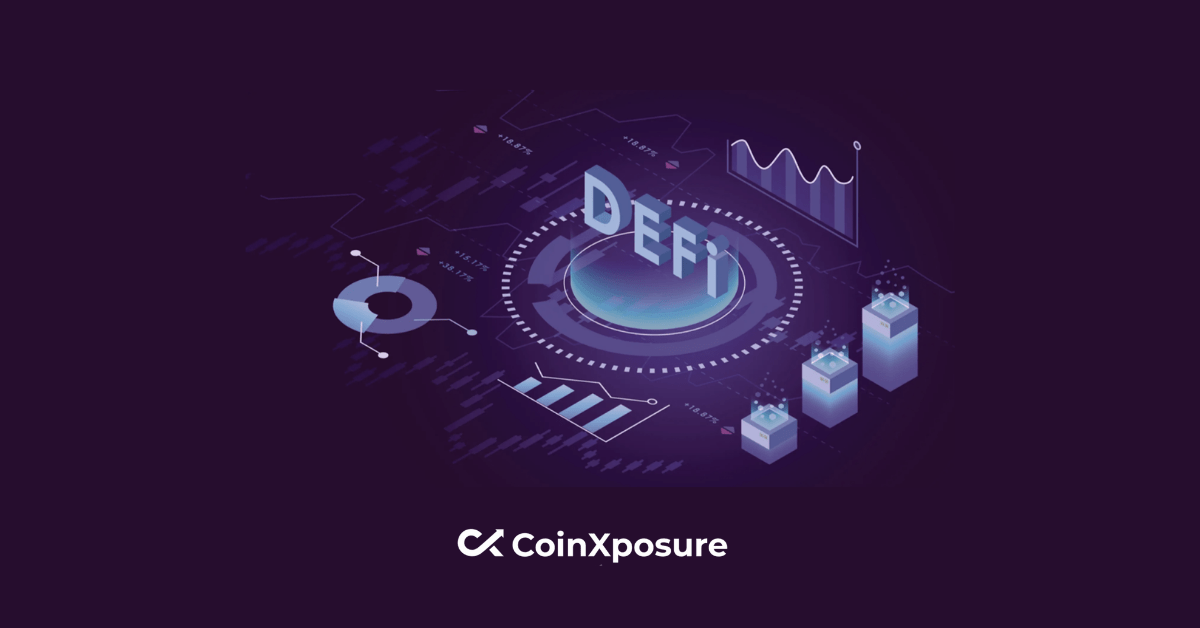
Exploring the Democratization of Wealth through DeFi
In recent years, democratizing wealth has gained significant traction, driven by the growing recognition of the widening gap between the affluent and the marginalized in traditional financial systems.
At the forefront of this movement lies DeFi, or Decentralized Finance, a disruptive force challenging the status quo by leveraging blockchain technology to provide accessible, inclusive, and permissionless financial services to anyone with an internet connection.
This article explores the intersection of DeFi and the democratization of wealth, exploring how decentralized protocols and platforms reshape the finance landscape and empower individuals worldwide to take control of their financial futures.
Understanding DeFi
DeFi, short for Decentralized Finance, represents a paradigm shift in the financial landscape, aiming to democratize access to financial services by leveraging blockchain technology and smart contracts.
Unlike traditional finance, which relies on centralized intermediaries such as banks and exchanges, DeFi operates on decentralized networks, enabling peer-to-peer transactions and eliminating the need for intermediaries.
Key features of DeFi include transparency, security, accessibility, and composability, allowing users to interact with a variety of financial services, including lending, borrowing, trading, and earning interest, directly from their digital wallets.
Through DeFi, individuals worldwide can access financial services without the need for traditional gatekeepers, fostering financial inclusion and empowerment on a global scale.
The Current Landscape of Wealth Inequality
In today’s world, wealth inequality remains a pressing issue, with significant disparities existing both within and between nations.
Globally, a small fraction of the population holds a disproportionate share of wealth, while a large portion struggles to make ends meet.
According to recent statistics, the top 1% of the world’s population owns nearly half of the world’s wealth, while the bottom 50% holds just 1% of global wealth.
Various factors contribute to wealth inequality, including unequal access to education, employment opportunities, inheritance, and asset ownership.
Additionally, structural issues within financial systems, such as discriminatory lending practices and unequal distribution of resources, further exacerbate the wealth gap.
The consequences of wealth inequality are far-reaching, impacting individuals’ access to basic necessities, healthcare, education, and opportunities for economic advancement.
Moreover, wealth inequality can lead to social unrest, political instability, and hindered economic growth.
Addressing wealth inequality requires comprehensive and systemic solutions, including policies promoting equitable wealth distribution, enhancing access to education and economic opportunities, and reforming financial systems to reduce barriers to entry and promote inclusive growth.
The Role of DeFi in Democratizing Wealth
Decentralized Finance (DeFi) is pivotal in democratizing wealth by fundamentally transforming traditional financial systems and empowering individuals with greater financial agency. Here’s how:
- Accessibility and Inclusivity
- Removal of Intermediaries
- Financial Empowerment
Accessibility and Inclusivity
DeFi platforms operate on open and permissionless blockchain networks, enabling anyone with an internet connection to access financial services.
This inclusivity breaks down entry barriers, allowing individuals previously excluded from traditional financial systems, such as the unbanked or underbanked, to participate in global finance.
Removal of Intermediaries
DeFi eliminates the need for intermediaries like banks or financial institutions, enabling direct peer-to-peer transactions.
By bypassing intermediaries, DeFi reduces transaction costs, eliminates delays, and gives users greater control over their funds.
Financial Empowerment
DeFi offers a wide range of financial services, including lending, borrowing, trading, and earning interest, directly from users’ digital wallets.
This empowers individuals to manage their finances autonomously, without relying on centralized authorities or intermediaries.
DeFi catalyzes democratizing wealth by providing individuals worldwide with access to inclusive, transparent, and decentralized financial services, thereby leveling the playing field and promoting economic empowerment on a global scale.
Challenges and Risks in DeFi
Here are some challenges and risks in DeFi:
- Smart Contract Vulnerabilities
- Regulatory Uncertainties
- Market Volatility
- Impermanent Loss
Smart Contract Vulnerabilities
DeFi platforms rely on smart contracts to automate financial transactions. However, vulnerabilities in smart contract code can lead to security breaches and financial losses. Malicious actors may exploit these vulnerabilities to steal funds or manipulate markets.
Regulatory Uncertainties
The regulatory landscape surrounding DeFi is still evolving, with regulatory bodies grappling to define and regulate decentralized financial activities.
Uncertainty regarding regulatory compliance and potential legal repercussions poses a challenge for DeFi projects and users.
Market Volatility
DeFi markets are often characterized by high volatility, leading to fluctuations in asset prices and potential losses for investors.
Market volatility can be exacerbated by factors such as liquidity issues, market manipulation, and external events impacting cryptocurrency prices.
Impermanent Loss
Liquidity providers in DeFi protocols may experience impermanent loss, which occurs when the value of assets held in a liquidity pool diverges from the value of those assets if held individually.
Impermanent loss can erode the returns of liquidity providers, particularly during periods of high volatility.
Addressing these challenges and risks requires ongoing efforts from developers, regulators, and users to enhance security, improve user experience, and establish clear regulatory frameworks that balance innovation with investor protection in the rapidly evolving DeFi landscape.
Future Outlook and Potential Impacts
Here are some future outlook and potential impacts of DeFi:
- Continued Growth and Innovation
- Increased Financial Inclusion
- Disruption of Traditional Finance
Continued Growth and Innovation
The future of DeFi is likely to be characterized by continued growth and innovation, with developers building new protocols and platforms to address evolving financial needs and challenges.
This innovation could lead to the creation of novel financial products and services, further expanding the scope and capabilities of decentralized finance.
Increased Financial Inclusion
DeFi has the potential to significantly increase financial inclusion by providing individuals worldwide with access to inclusive, transparent, and decentralized financial services.
As DeFi continues to mature and expand, it could help bridge the gap between the unbanked or underbanked populations and traditional financial systems.
Disruption of Traditional Finance
DeFi poses a disruptive threat to traditional financial institutions by challenging their dominance and providing alternatives to centralized financial services.
As DeFi gains traction, it could reshape the financial landscape, leading to greater competition, lower costs, and increased efficiency in financial markets.
The future outlook for DeFi is promising, with the potential to revolutionize the financial industry, promote financial inclusion, and empower individuals worldwide to participate in the global economy on their own terms.
However, realizing these potential impacts will require collaboration between stakeholders, ongoing innovation, and thoughtful regulation to ensure the responsible growth of decentralized finance.
Conclusion
The exploration of the democratization of wealth through DeFi reveals a transformative potential that holds promise for reshaping the financial landscape and empowering individuals worldwide.
DeFi represents a paradigm shift in finance, leveraging blockchain technology to provide accessible, inclusive, and permissionless financial services to anyone with an internet connection.
Through DeFi, individuals can access a wide range of financial services, including lending, borrowing, trading, and earning interest, directly from their digital wallets without traditional intermediaries.
This accessibility and inclusivity break down barriers to entry, enabling the unbanked or underbanked populations to participate in global finance and empowering individuals to take control of their financial futures.
In navigating the evolving landscape of DeFi, collaboration between stakeholders, ongoing innovation, and thoughtful regulation will be essential to harnessing the full potential of decentralized finance while mitigating risks and ensuring the responsible and sustainable democratization of wealth for all.





